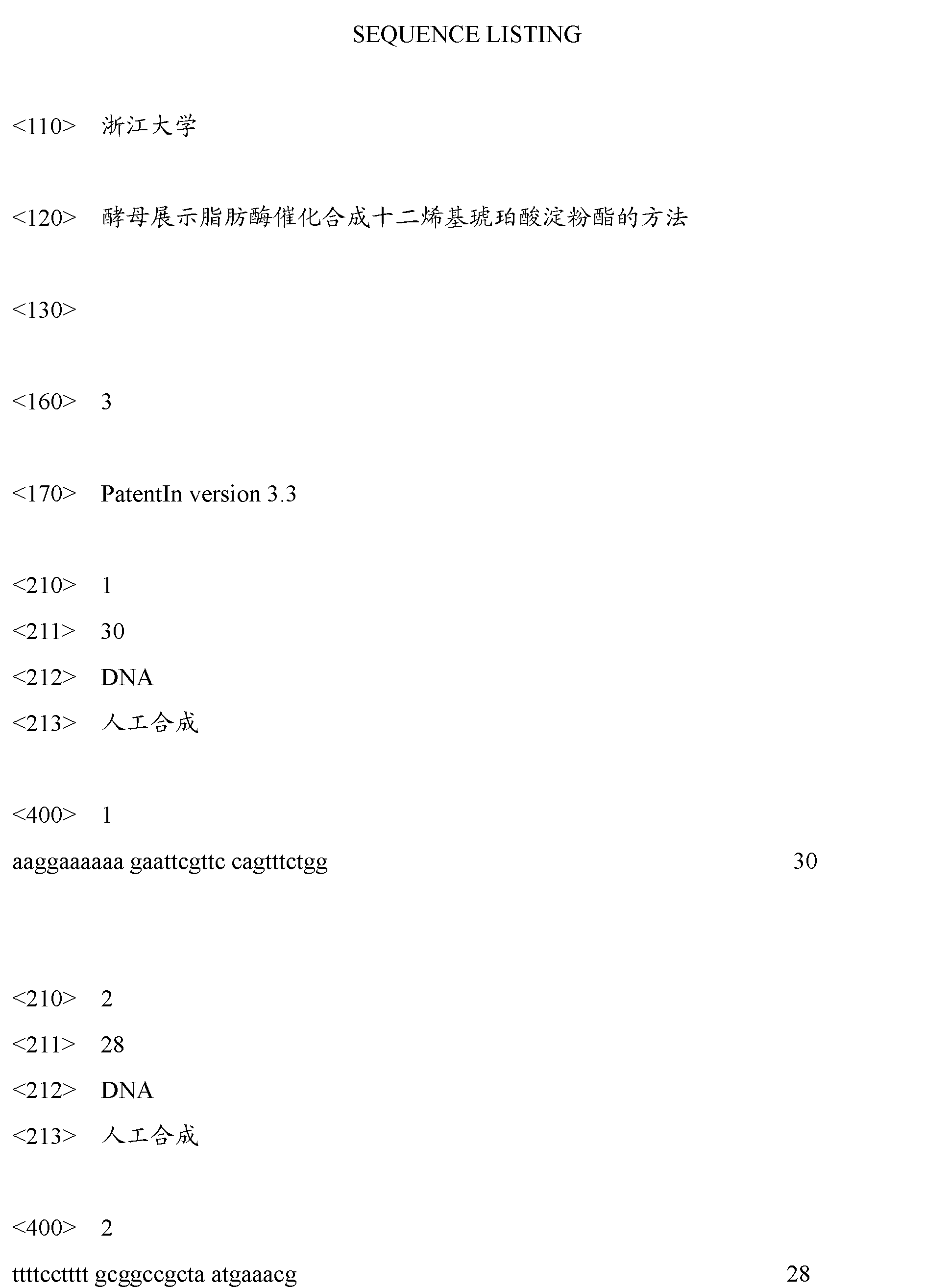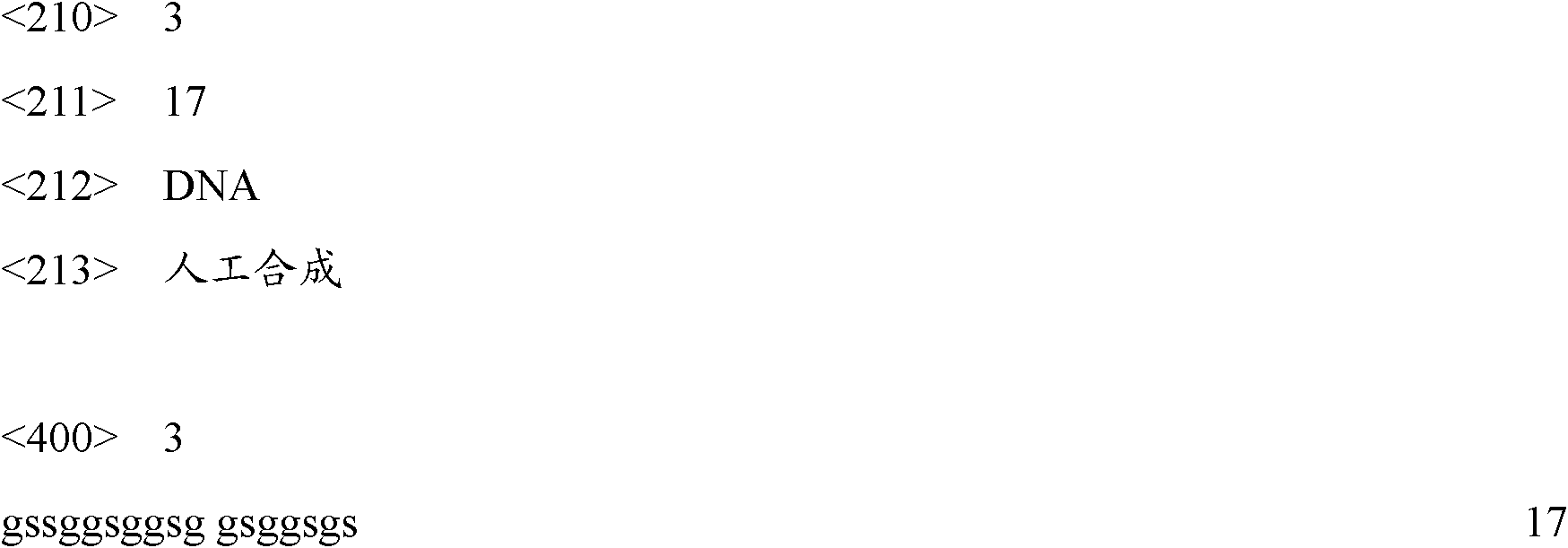Method for catalytically synthesizing starch sodium alkenylsuccinate (SSAS) with yeast display lipase
A technology of dodecenylsuccinic acid and lipase gene, applied in the field of bioengineering, can solve the problems of limited commercial application, high production cost, complicated and time-consuming immobilization process, etc., and achieves improved operation stability, low production cost, The effect of shortened reaction time
- Summary
- Abstract
- Description
- Claims
- Application Information
AI Technical Summary
Problems solved by technology
Method used
Image
Examples
Embodiment 1
[0017] Example 1 Preparation of Yeast Surface Display Lipase
[0018] Synthesize the lipase gene (Genbank number: AF229435) of Rhizopus oryzae and the cell wall α-lectin gene of Pichia pastoris GS115 (Genbank number: M28164) by artificial synthesis, and add Connect the peptide sequence GSSGGSGGSGGSGGSGS(linker), and get the nucleotide sequence pro-ROL-linker-α-agglutinin after connection, and add EcoR I and Not I restriction sites at both ends of the sequence, where pro-ROL is the lipase gene , α-agglutinin is the cell wall α lectin gene.
[0019] Using the above artificially synthesized sequence as a template, PCR amplification was performed using the following primer pair,
[0020] Upstream primer: 5'-AAGGAAAAAAAGAATTCGTTCCAGTTTCTGG-3';
[0021] Downstream primer: 5'-TTTTCCTTTTGCGGCCGCTAATGAAACG-3'
[0022] The PCR reaction system is: 1 μl of template DNA, 0.5 μl of high-fidelity DNA polymerase, 0.4 μl of dNTP (50 mM), 0.5 μl of upstream and downstream primers, 5 μl of 10...
Embodiment 2
[0026] Example 2 Synthesis of starch dodecenyl succinate catalyzed by lipase displayed on the surface of yeast
example 1
[0027] Example 1 Take 350g of corn starch and prepare 35% starch milk (starch dry basis) with water, absorb water at 65°C for 15 minutes to make the starch milk swell with water, add 1g of the yeast surface-displayed lipase prepared above after cooling, and then add 10ml in batches 15% (volume) ethanol solution of dodecenyl succinic anhydride, placed in a 85-1 type magnetic stirrer and stirred to start the reaction, the rotating speed was 200 rpm, the reaction temperature was kept at 60°C, and the stirring was stopped after 1 hour of reaction, and the pH was adjusted When the value reaches 7.0, the product is obtained after dehydration, alcohol washing, drying, crushing and sieving.
PUM
 Login to View More
Login to View More Abstract
Description
Claims
Application Information
 Login to View More
Login to View More - R&D Engineer
- R&D Manager
- IP Professional
- Industry Leading Data Capabilities
- Powerful AI technology
- Patent DNA Extraction
Browse by: Latest US Patents, China's latest patents, Technical Efficacy Thesaurus, Application Domain, Technology Topic, Popular Technical Reports.
© 2024 PatSnap. All rights reserved.Legal|Privacy policy|Modern Slavery Act Transparency Statement|Sitemap|About US| Contact US: help@patsnap.com









